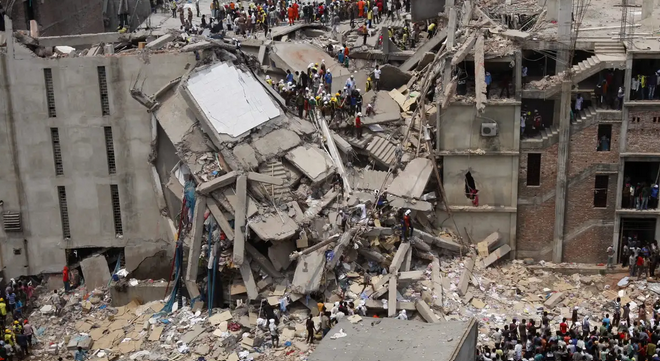The Weekly Reflektion 32/2025
In industries where workers’ rights are not given the same priority as they are in, for example, the Norwegian petroleum industry, warning signs are easily ignored, with potentially catastrophic consequences. Do not get caught in this dilemma.

Do you take warning signals seriously from everyone in your organisation?
The Rana Plaza collapse in Dhaka, Bangladesh occurred on 24 April 2013, when the eight-story building collapsed due to a structural failure. The search for survivors lasted for 19 days and ended on 13 May 2013, with a confirmed death toll of 1,134. Approximately 2,500 injured people were rescued from the buildingwhich housed five garment factories, a bank, and apartments.
On the morning of the collapse, there was a power outage and diesel generators on the top floor were started. At 08:54 am local time, loud vibrations and rumbling noises were heard from the top floors and spread throughout Rana Plaza, causing many workers to rush towards the exits. The building collapsed completely 3 minutes later, leaving only the ground floor intact.
The building was constructed on the site of a filled-in pond which compromised structural integrity, and the upper 4 floors had been built without a permit. The building was designed only for shops and offices but was being used for industrial use. The extra weight of machinery, and associated vibrations were outside the original design scope for the building. The investigation found that sub-standard building materials had also been used in the construction.
After receiving complaints from the workers, the industrial police had requested the evacuation of the building citing concerns about the structural integrity. A TV channel showed footage of cracks in the building structure. A local politician and the owner then visited the building and declared it safe and demanded workers, who had left the building due to their concerns, should return to work the next day. Managers at the factories in the building threatened to withhold a month’s pay from workers who refused to come to work. As a result, workers returned to the factories. Fatefully his was the day before the collapse.
The Bangladesh authorities formally charged the owner and 38 people with murder. While unprecedented progress has been made to make factories safer after the incident, many challenges still exist in the Bangladeshi garment industry which makes many of the clothes that we wear today.
Ignoring warning signals has been a theme for many Reflektions since we started Reflekt in October 2017. Management should not only be listening to, and acting on, peoples’ concerns, they should be actively encouraging people to speak up and talk about these concerns. Not all concerns are related to the safety of people working in the facility, and not all concerns can easily be corrected. We often find that management is busy, and they worry that encouraging people to voice their concerns will lead to commitments to follow up that will add to the already busy day. In effect they feel they lose control of their time. One thing experience tells us is that a major accident at your facility will take up most, if not all, of your time. Remember it is not control of your time that is important. What is important is control to ensure that accidents are prevented and people at your facility are safe.
